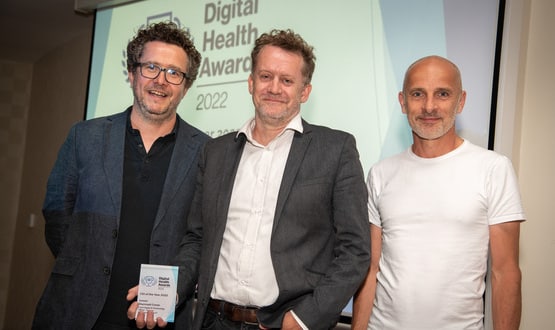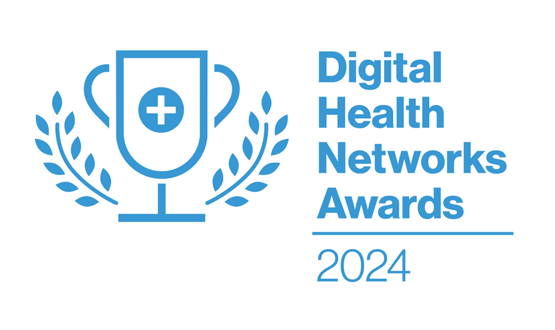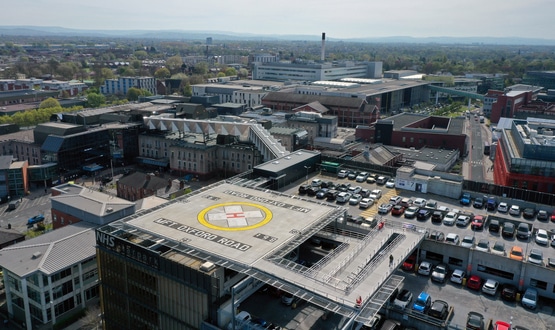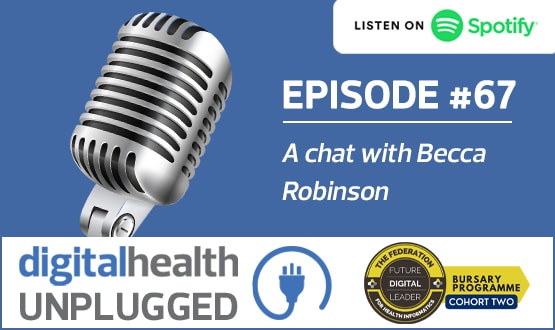Digital Health Awards 2022 winner profile: Diarmaid Crean
- 3 October 2022

The latest Digital Health Awards 2022 winner profile focuses on Diarmaid Crean, who was named CIO of the Year. The chief digital and technology officer at Sussex Community NHS Foundation Trust discusses his career so far, how it felt to win the award, his digital aspirations within his role and organisation, and advice for those thinking of becoming a CIO.
How did you become a CIO?
My journey to a CIO is a sequence of almost random decisions about what I should do next because it looked interesting. There’s no ‘I’m going to be this thing’ at the end, when I was a kid leaving school I had no idea what I was going to do.
I have, among many other things, been a sailor, a farmer, I’ve been all sorts of different professions in my life and done all sorts of different jobs.
I got into technology when I was working at a television company and I was their tech lead, building systems to help improve the way we made our television programmes. There, I started learning a lot about data and technology and found that I had a bit of a passion for it.
I’ve meandered through different types of organisations, I’ve worked in travel, I’ve worked in banking, I’ve worked in E-commerce, I’ve worked in government, and now I’m working in the NHS.
How did it feel to win CIO of the Year?
I didn’t think I was going to get it. Honestly I chatted to the two other individuals and when I’d learned what they both do, I thought to myself I’m just going to have to gracefully accept my third place.
I just didn’t think I had a chance so the truth is I was slightly gobsmacked when I got it. I’m totally flattered but it’s not me, for sure, it’s the team that does all those thing. But I think my hope would be that by winning the award and having the profile of my organisation’s willingness to embrace digital elevated means that we can go further, faster and higher.
I’m enthused as to what we can do with it, it’s great to get it, it’s flattering, but actually I’m more inclined to say how can I use this for the digital team in Sussex Community to say okay, we need to go further higher, faster and do better even more with the technology. I could maybe use it as an opportunity to inspire ourselves to go better.
What is the most challenging part of your role?
The overwhelming amount of demand of what people want you to be able to do to help solve their problems. We could be ten times the size of the digital team with ten times the amount of money and we would still be struggling to meet the level of demand.
There’s a lot of things and various parts, for example all the services that we run as an NHS community trust. There’s 84 different services or modules of services out there doing podiatry, respiratory, looking after children, whatever it is they’re all pressurised, have a lot of work on and will do really important work.
They’re also all aware of the fact that technology and digital can actually help them do their jobs better and all the systems they use could be improved in some ways that they’ve worked out that can make their lives better.
You build all that demand up and there’s a lot of people saying, ‘can you do this, can you do that’ and so it’s a real struggle to meet that demand.
We work very hard, but there’s a vast amount. The struggle is trying to figure out what we should do next, what should we prioritise and try our best to meet that huge amount of demand, but it’s a large amount of it.
Within your organisation, what is the most significant digital achievement of the past 12 months?
I would say it’s not necessarily about any piece of tech, or any clever bit of use of data, it’s the fact that we have developed a bit of a cultural movement in our organisation of digital clinicians or digital nurses and digital therapists.
People who would have been professionally trained as clinicians in the NHS classically have decided that they want to be known and seen as digital versions of themselves.
So they’ve sort of taken on the mantle of being digital evangelists talking about the opportunities of digital and they’re out there trying to be innovative in the services.
I would possibly be most proud of the fact that we’ve sort of built this ground up movement of people just wanting to be seen as being digital versions of a nurse or a therapist or a clinician of some sort.
What is the largest barrier to achieving digital transformation?
Culture. Money would be probably one, but culture, or cultural resistance. There’s a lot of people who are scared of tech, worry about what it’s going to mean for their job and maybe they’re comfortable working the way they’ve always worked and don’t like the change.
There’s a lot of people who are just not comfortable or not confident using technology, they’re worried that they might make mistakes or not know how to use it properly.
A huge part of the work is about trying to give people the confidence and help them adapt to that change and see the benefits of it.
With many projects we do you go in and you start talking to people and they say ‘oh we can’t do it it’s never going to work; it’s going to be just nothing but a headache for us’ and they have this resistance to it.
Then if you persist and you work with people and you help them get there, then the quotes at the end of the project are ‘oh my god, it saves so much time, it’s so much better for us’. You’re trying to convince them to go on that journey, so the hard piece is that cultural acceptance and shifting of behaviours towards using the technology and seeing that it can be beneficial.
What do you hope to digitally achieve within your role and organisation over the next 12 months?
I have been given a corporate objective by my board which is we need to be a digital leader.
There is an ambition in our organisation to be a digital leading community trust in the NHS, to be stand out in the way that we have embraced technology and digital capability to improve the way we offer care to our patients and the way that our staff work.
If we’re able to successfully point at what we’ve done and say, ‘look we are a digital leader, we’re doing stuff that is really showing a new way of operating’, I think that would be the success I would want to point to.
What advice would you give to anyone who is thinking of becoming a CIO?
It’s a brilliant job, so if you feel that you can do it and you’ve got the experience that you think you can do it, then I’d say definitely go for it.
In all of my career of doing tech for various types of organisations, there’s nothing more rewarding than using your ability to use an understanding of technology, how it works and how it can be implemented for the purposes of trying to make people’s lives better and to improve the way that we care for people.
Being a CIO in the NHS is for me the most rewarding version of what I have done in my career today by some margin. Going through things like the pandemic, where we were running at 150 miles an hour to try to do that at pace and pulling it off and getting everybody vaccinated was the same thing again but on steroids and on a super high level.
Those kinds of experiences are amazingly rewarding and inspiring to be a part of a team of people who do that kind of thing. That is definitely something I would say to people who want to be a CIO in the NHS. It’s a brilliant opportunity if you can get into that role.
But I would talk to people in the outside world who have not been with the NHS long term, who’ve got a lot of really amazing experience.
I’d say the value of the opportunity that people who develop that experience outside the NHS, who’ve got confidence and knowledge about how to implement complex systems and how to help organisations go through that transformation, that’s invaluable experience.
It’s hard work as well because the public sector is more complex. So that would be my advice, do it because it’s amazing, but don’t expect it’s going to be simple by any stretch of the imagination.
This is the fifth profile piece on the Digital Health Awards 2022 winners. You can find out who scooped each award here.




